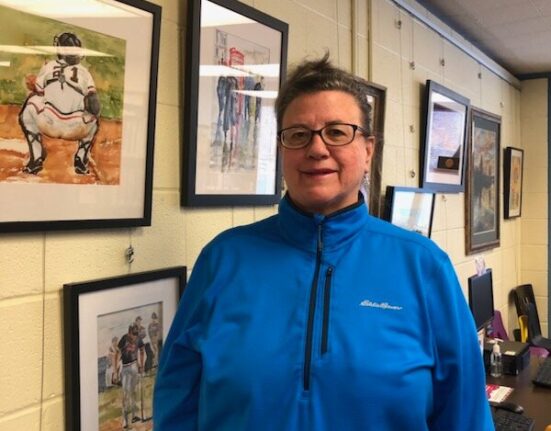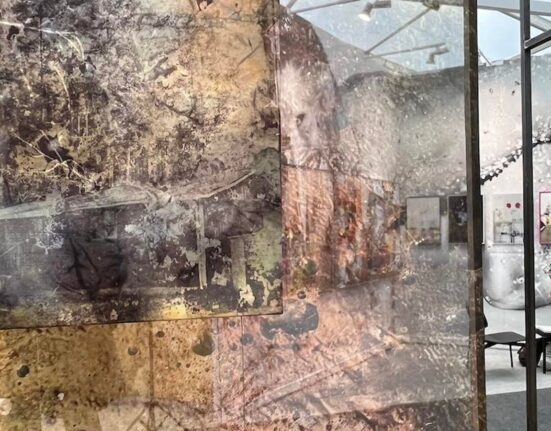Exhibition of the week
Jerwood Survey III
Well-known artists have each nominated their favourite beginner for this glimpse of the future of art, featuring Philippa Brown, Alliyah Enyo, Paul Nataraj and more.
Southwark Park Galleries, London, 6 April to 23 June
Also showing
Ted Pim
Paintings that meditate on mirrors and pastiche the Old Masters.
Almine Rech, London, 11 April to 18 May
Baltic Open Submission 2024
Artists, both professional and amateur, from across the north-east of England reveal their talent.
Baltic, Gateshead, until 1 September
Outi Pieski
The last few weeks of this captivating show about life and memory in the Arctic.
Tate St Ives until 6 May
Ibrahim Mahama
Purple fabric recalling the royal robes of Ghana’s former kings brings the Barbican’s lakeside terrace to life.
Barbican, London, 10 April to 18 August
Image of the week
Where’s your favourite minotaur fireplace? This one is in Ron Gittins’s flat in Birkenhead, which has been granted Grade II-listed status. Gittins was an eccentric who could be found wearing a wig, gaiters made of newspaper and wellies, while pushing a pram around town. He died in 2019, leaving his fantasy world interiors in danger of being scrapped. Campaigners bought the whole house to save it (thanks to Tamsin Wimhurst, who read about it in the Guardian), and pushed for it to become the UK’s first example of outsider art to be nationally listed.
What we learned
The fortunes of a Ukrainian sculptor whose studio was bombed have improved
Winning a place at Academy of Fine Arts in Prague is a long way from easy
A new show reveals Rubens as the dark master of Flemish drawings
A photography bursary was launched in memory of the Guardian’s Eamonn McCabe
Public art’s a party – and everyone’s invited!
US war photographer Peter van Agtmael has spent decades on the frontline
Finger-wrestling is not the delicate art you might imagine
Masterpiece of the week
Insects with Common Hawthorn and Forget-Me-Not by Jan van Kessel the Elder, 1654
This little painting comes from the northern Europe of the scientific revolution, when lenses were letting artists and researchers look at nature with closer eyes than ever before. Not that Van Kessel necessarily needed an optical instrument to observe these little creatures, flowers, leaves and berries so minutely. It’s rather that looking this closely was encouraged by the new scientific spirit. Microscopy was in the air. Dutch lens maker Zacharias Janssen had invented an early microscope by 1600 and it would be improved by another Dutch pioneer, Antonie van Leeuwenhoek, in the 1660s, when the English scientist Robert Hooke was also using a microscope to see and draw tiny insects. This painting manifestly belongs to that moment when insects were swarming into view, their tiny bodies analysed with awe. Its patient and precise style is highly scientific, and provides information as well as beauty, like a portable museum of nature caught in oils on a panel less than 15cm wide.
National Gallery, London
Don’t forget
To follow us on X (Twitter): @GdnArtandDesign
Sign up to the Art Weekly newsletter
If you don’t already receive our regular roundup of art and design news via email, please sign up here.
Get in touch
If you have any questions or comments about any of our newsletters please email newsletters@theguardian.com







